ENVIRONMENTAL ENGINEERING BSC
Introduction of the Environmental Engineering BSc program
Degree program name: Environmental Engineering BSc
Number of credits to collect to earn a degree: 210 credits
Training time: 7 semesters
Training schedule(s) and duration of courses in semesters, number of contact hours: full time (regular)
Level of qualification: bachelor – BSc
Professional qualification as indicated in the degree certificate: Environmental Engineer
The Environmental Engineering BSc (E) full training program is available on the following link >>
Why should you choose our Environmental Engineering study program?
Because we train professionals who respect and protect the environment and understand the processes that take place in it.
Because an environmental engineer not only knows the environmental values, but also manages them in a sustainable way.
Because as an engineer, you would learn to design technologies that can operate with the lowest possible harmful emissions, with the highest efficiency.
Because as a student, you will be involved in everything from field measurements to laboratory preparation and analytical methods.
Because you can be a member of a community where you have the opportunity to develop your specific approach and present it in scientific and professional conferences.
Educational objectives
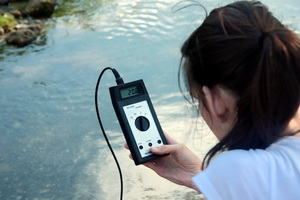
The aim is to train environmental engineers with up-to-date knowledge and skills of applied natural sciences, ecology, technology, economics, and management. They can identify environmental hazards in various areas, and they can use their professional experience to manage prevention and remediation actions economically and efficiently. In possession of their professional knowledge and skills, they are capable to take part in the prevention, reduction, and elimination of environmental pollution and damage; in endeavors towards the rational use of natural resources; and in the operation of low-waste and energy-efficient technologies. At the end of the training program, our students will be able to develop technological solutions for waste recycling, hazardous waste disposal, while they will get general knowledge in the field of nature and landscape protection, environmental policy, as well as are able to communicate and work with domestic and foreign professionals with their engineering qualifications and knowledge of a world language. They are suitable for the design, organization, control, and creative participation of environmental projects in engineering, and are able to adapt to ever-changing requirements. They are prepared to continue their studies at a Masters’s course. In order to take care of the global social, economic, and environmental problems a new approach, a “new type of person” is required. In the field of environmental engineering, we are training professionals who will have the appropriate knowledge and competencies to improve, maintain and operate the environment in an environmentally friendly manner.

Our students take part in a multidisciplinary course that can be utilized in many areas. They get a comprehensive ecological approach and knowledge about the aspects of landscape analysis and assessment, the biological foundations of environmental protection, and the applicability of modern biotechnological procedures. They also gain knowledge about the utilization of renewable energies, waste management, wastewater treatment, air quality, noise and vibration protection, and the environmental policy of the EU and Hungary. They have up-to-date technical, technological, human- and natural science knowledge to prevent and redact any sort of environmental impact. They are able to do environmental impact studies, risk analysis, comprehensive evaluation about a plan or a project, taking into consideration of environmental aspects before the activity itself. They have the appropriate competencies which are needed to perform the basic sampling procedures and measurements that are required to perform environmental audits.
Typical subjects of the training
Nature and landscape protection, earth science expertise, public health, environmental biology, ecology, protection of environmental elements, environmental operations and technologies, GIS, environmental economics and environmental management, knowledge of environmental law, systems approach, quality management systems. -The knowledge acquired by our students during their studies and the skills acquired during the internships can be utilized well in the productive sphere, at economic organizations, at local governments, at nature conservation, water, and environmental inspectorates. As environmental managers at enterprises and plants, their qualifications can be applied in the planning, controlling, and implementation processes of prevention and remediation.
Descriptions of the studied subjects
For the detailed subject descriptions please check out the BSc (E) Environmental Engineer Sample curriculum chart: you can click on the subject’s name to see the detailed descriptions >>
Important note: For students who participate in the Erasmus program, they will need to pick up your courses in Autumn/Spring breakdown on the basis of the curriculum.
Specializations
Sustainable Energy Management, Green Energy Specialisation

Nowadays, knowledge about Green Energy is indispensable for both the domestic and the foreign energy sector and the industrial partners. The aim of this specialization is to get knowledge about renewable energy sources (wind, solar, geothermal, and hydropower) and to learn the conditions about how to design and how to apply them. We also provide insight into the conditions for the cultivation and energy utilization of biomass raw materials.
Sustainable land development, water management specialisation
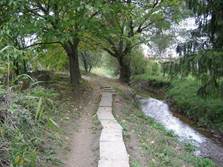
The most important goal of municipal water management is the sustainable water supply, which ensures the supply of the population and other consumers in long term, according to public health regulations while taking in consideration the effects of climate change. Modern wastewater treatment and recycling of treated wastewater at a high rate can ensure the protection of recipients and the retention of water on site. At the settlements one primary task is to drain the rainwater without any damage and to utilize it as much as possible locally, which is in accordance with modern water resources management. During their studies, the students of the specialization get acquainted with the integrated tasks of municipal water management, the purpose, and possibilities of precipitation management, and acquire the methods for performing engineering tasks of river basin management and exploration. Students get know the methods of remote sensing in settlement development and environmental protection, hydrometric and hydro-ecological measurements during field measurement exercises.


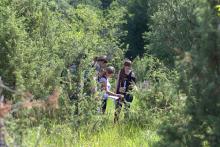
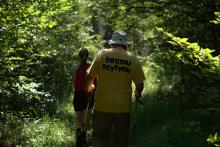
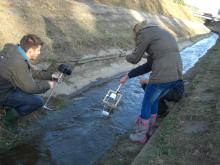
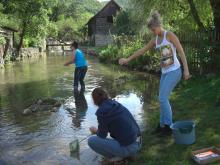
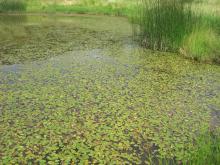
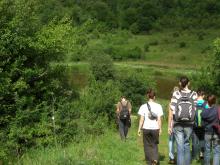
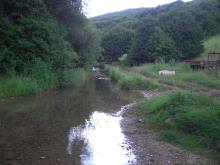
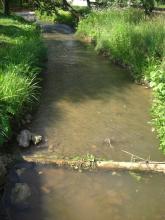
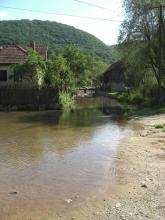
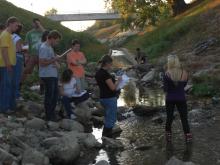
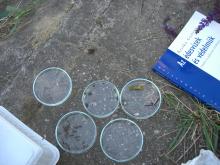
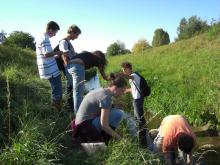
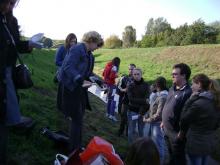

new (F) curriculum: https://rkk.uni-obuda.hu/tantervek/
new F) Training Program: https://rkk.uni-obuda.hu/kepzesi-programok-training-programmes/
Subjects
| Name of subject | Neptun code | Credit | Requirements | File |
|---|---|---|---|---|
| Alternative energy usage in practice I. | RKWAE1EBNE | 6 | examination | >> |
| Alternative energy usage in practice II. | RKWAE2EBNE | 6 | examination | >> |
| Analytical chemistry | RKXAK1ABNE | 3 | practice mark | >> |
| Basic Biotechnology | RKWBI1ABNE | 3 | practice mark | >> |
| Basic of energetics | RKWEG1EBNE | 4 | practice mark | >> |
| Basics of Management | GVXMA1QBNE | 3 | examination | >> |
| Biology I. | RKXBI1EBNE | 4 | practice mark | >> |
| Biology II. | RKXBI2EBNE | 4 | examination | >> |
| Biomass production and recovery | RKWMU1EBNE | 5 | examination | >> |
| Chemistry I. | RMXCA1KBNE | 5 | examination | >> |
| Chemistry II. | RMXCA2KBNE | 5 | examination | >> |
| Data processing of measurements | RKXMF1ABNE | 3 | practice mark | >> |
| Development of management systems I. | RMWDS1ABNE | 5 | examination | >> |
| Development of management systems II. | RMWDS2ABNE | 3 | examination | >> |
| Disaster recovery | RKWKA1EBNE | 4 | practice mark | >> |
| Disaster recovery | RKWKA1EBNE | 4 | midterm grade | >> |
| Earth sciences knowledge | RKXFT1ABNE | 4 | practice mark | >> |
| Ecology | RKXOK1ABNE | 4 | examination | >> |
| Electrotechnics | RKXEL1EBNE | 4 | practice mark | >> |
| Enterprise Economics | GSEVG2QBNE | 4 | examination | >> |
| Environmental analytics | RKXKA1EBNE | 3 | examination | >> |
| Environmental and nature field exercises | RKXGY1EBNE | 4 | practice mark | >> |
| Environmental aspects of settlement operation I. | RKWTU1EBNE | 4 | practice mark | >> |
| Environmental aspects of settlement operation II. | RKWTU2EBNE | 5 | examination | >> |
| Environmental elements protection I. – Water quality protection | RKXKE1ABNE | 3 | practice mark | >> |
| Environmental elements protection II. – Air quality protection | RKXKE2ABNE | 3 | practice mark | >> |
| Environmental elements protection III. – Soil protection | RKXKE3ABNE | 4 | practice mark | >> |
| Environmental hazards I. – Noise and Vibration Protection | RKXKA1ABNE | 3 | practice mark | >> |
| Environmental hazards II. – Environmental radiation protection | RKXKA2ABNE | 2 | practice mark | >> |
| Environmental hazards III. – Waste Management | RKXKA3ABNE | 2 | examination | >> |
| Environmental impact assessment | RKXHV1ABNE | 2 | practice mark | >> |
| Environmental law | RKEKJ1ABNE | 3 | practice mark | >> |
| Environmental Management | RKXKZ1EBNE | 3 | practice mark | >> |
| Environmental management knowledge | RKWOG1EBNE | 3 | examination | >> |
| Environmental quality management system | RMWQM1EBNE | 5 | examination | >> |
| Environmental quality management system | RMWQM1ABNE | 5 | examination | >> |
| Environmental simulation | RKWSI1ABNE | 2 | practice mark | >> |
| Environmental Simulations | RKWSI1ABNE | 2 | practice mark | >> |
| Environmental studies | RKXKT1ABNE | 3 | examination | >> |
| Environmental Technologies and Operations I.- Water and waste-water treatment technologies | RKXKM1ABNE | 3 | examination | >> |
| Environmental Technologies and Operations II.- Renewable energy | RKXKM2ABNE | 2 | practice mark | >> |
| Geoinformatics (GIS) | RKXTI1ABNE | 3 | practice mark | >> |
| Hydrobiology | RKWHB1EBNE | 4 | midterm grade | >> |
| Hydrology and hydraulics | RKWHH1EBNE | 5 | midterm grade | >> |
| Industrial raw material and waste | RMWIH1EBNE | 5 | practice mark | >> |
| Informatics I. | RMEIN1ABNE | 4 | practice mark | >> |
| Informatics II. | RMXIN2EBNE | 4 | practice mark | >> |
| Informatics support for management systems | RMWII1ABNE | 5 | practice mark | >> |
| Informatics support of management systems | RMWII1ABNE | 5 | practice mark | >> |
| Integrated Management Systems | RMWIM1EBNE | 3 | practice mark | >> |
| Machine elements | RKEGZ1ABNE | 3 | examination | >> |
| Macroeconomics | GGXKG1QBNE | 2 | practice mark | >> |
| Mathematics I. | NMXAN1EBNE | 6 | examination | >> |
| Mathematics II. | RKXMA2EBNE | 6 | examination | >> |
| Microeconomics | GGXKG2QBNE | 2 | practice mark | >> |
| Nature and landscape protection | RKXTT1ABNE | 3 | examination | >> |
| Occupational Safety and Health | RKEBT1EBNE | 3 | practice mark | >> |
| Open and Closed loop Control | RKXSV1EBNE | 3 | practice mark | >> |
| Physics I. | RKXFI1ABNE | 3 | practice mark | >> |
| Physics II. | RKXFI2ABNE | 3 | examination | >> |
| Project management | RMEPR1KBNE | 2 | examination | >> |
| Project Work | RKPPR1ABNE | 4 | practice mark | >> |
| Proposal Writing in Theory and Practice | RKWPA1EBNE | 4 | practice mark | >> |
| Public Health | RKXKU1ABNE | 2 | examination | >> |
| Remote sensing and geographic information science (GIS) in water management | RKWTV1EBNE | 5 | midterm grade | >> |
| Risk analysis | RKXKO1ABNE | 3 | examination | >> |
| Settlement development | RKWGT1EBNE | 5 | practice mark | >> |
| Settlement development | RKWGT1EBNE | 5 | midterm grade | >> |
| Technical drawing and documentation | RKXMR1EBNE | 4 | practice mark | >> |
| Technical mechanics | RKXME1EBNE | 5 | practice mark | >> |
| Technologies of manufacturing technologies and environmental protection | RTEFT1EBNE | 5 | practice mark | >> |
| The source of renewable energies I. (The application of solar energy) | RKWMF1ABNE | 3 | examination | >> |
| The source of renewable energies II. (The application of wind power) | RKWMF2ABNE | 4 | examination | >> |
| The source of renewable energies III. (Geothermal, water energy) | RKWMF3ABNE | 4 | examination | >> |
| Wastewater and sewage sludge management and recycling | RKWSZ1EBNE | 3 | midterm grade | >> |
| Water utility and urban drainage | RKWVH1EBNE | 5 | examination | >> |
| Watershed management and stormwater management | RKWCG1EBNE | 4 | examination | >> |
| Wetland management, the protection of aquatic environment and its legal control | RKWVJ1EBNE | 3 | examination | >> |